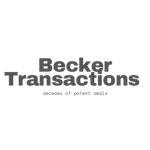The Impact of the Inflation Reduction Act on Patent Strategies in the Biopharmaceutical Industry

The Inflation Reduction Act (IRA) has introduced significant changes to the biopharmaceutical industry, particularly in how patents are managed and strategized. By implementing price controls and incentivizing the development of biologics over small molecules, the IRA is reshaping the landscape of drug development and intellectual property management. These changes present both challenges and opportunities for biopharmaceutical companies as they navigate this new regulatory environment.
Key Developments
The IRA has drawn considerable attention due to its provision that allows price controls to kick in after nine years for small molecule drugs and 13 years for biologics. This disparity incentivizes companies to focus on biologic drugs, which are given a longer period of market exclusivity before price negotiations can begin (WolfGreen)(Today's GC). This shift has profound implications for patent strategies, as companies may prioritize patenting biologic innovations over small molecule drugs to maximize their return on investment.
One significant case that highlights the impact of the IRA is Amgen v. Sanofi. This case set precedents impacting antibody technology and patent expiration dates, reflecting the evolving nature of patent strategies in response to regulatory changes (Today's GC). Companies must now carefully consider how their patent portfolios align with the new incentives provided by the IRA.
Strategic Considerations
Businesses in the biopharmaceutical sector must adapt their patent strategies to align with the new incentives and regulatory landscape introduced by the IRA. This involves a strategic reassessment of which assets to prioritize for patent protection and how to manage the lifecycle of these patents. For instance, companies might focus more on extending the patent life of biologics through various strategies such as patent term extensions and supplementary protection certificates (WolfGreen).
Furthermore, the Biden Administration's Executive Order mandating that products developed with federal support be manufactured in the United States adds another layer of complexity. This requirement influences the entire supply chain and manufacturing processes, compelling companies to consider domestic manufacturing capabilities when planning their patent strategies (WolfGreen).
To effectively navigate these changes, companies must employ robust IP management tools. Patlytics.ai, for example, offers advanced analytics and AI-driven insights that can help companies optimize their patent portfolios in light of the IRA's provisions. By automating the process of monitoring regulatory changes and analyzing their impact on patent strategies, Patlytics.ai enables businesses to make informed decisions and maintain a competitive edge (Law Firm SOS).
Legal and Regulatory Challenges
The legal challenges associated with the IRA are significant. Companies are already mounting challenges to the legislation, arguing that it imposes arbitrary restrictions and lacks sufficient judicial oversight(Home | Kirkland & Ellis LLP). These legal battles will likely shape the future interpretation and implementation of the IRA, adding another layer of uncertainty for biopharmaceutical companies.
Moreover, the need to align with the IRA's manufacturing requirements necessitates careful compliance with both domestic and international IP laws. Companies must ensure that their patent filings and manufacturing processes meet the new regulatory standards, which may require substantial adjustments to existing practices (WolfGreen).
Conclusion
The Inflation Reduction Act has introduced a transformative shift in the biopharmaceutical industry's approach to patent strategies and IP management. As companies navigate these changes, tools like Patlytics.ai are essential for automating the process of monitoring regulatory developments and providing targeted insights that traditional non-AI IP analytics cannot match. By leveraging advanced analytics and AI, Patlytics.ai helps businesses stay compliant, optimize their patent portfolios, and maintain a strategic advantage in an increasingly complex regulatory environment. The biopharmaceutical industry must remain agile and proactive, utilizing cutting-edge technologies to adapt to the evolving landscape of IP law and regulatory requirements.
Reduce cycle times. Increase margins. Deliver winning IP outcomes.
The Premier AI-Powered
Patent Platform










.png)




























.png)




























.png)




























.png)

















